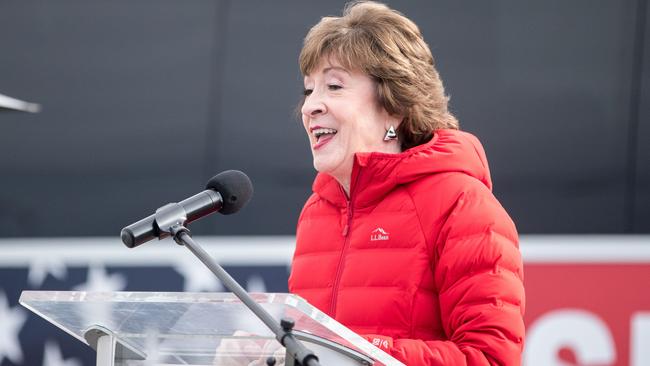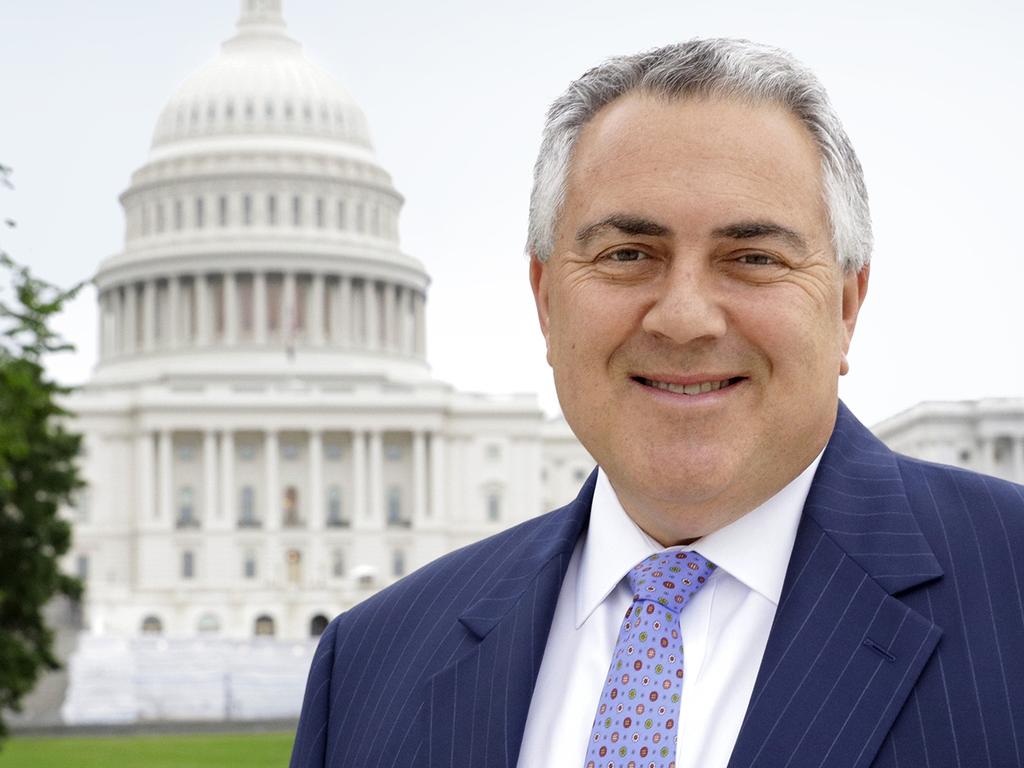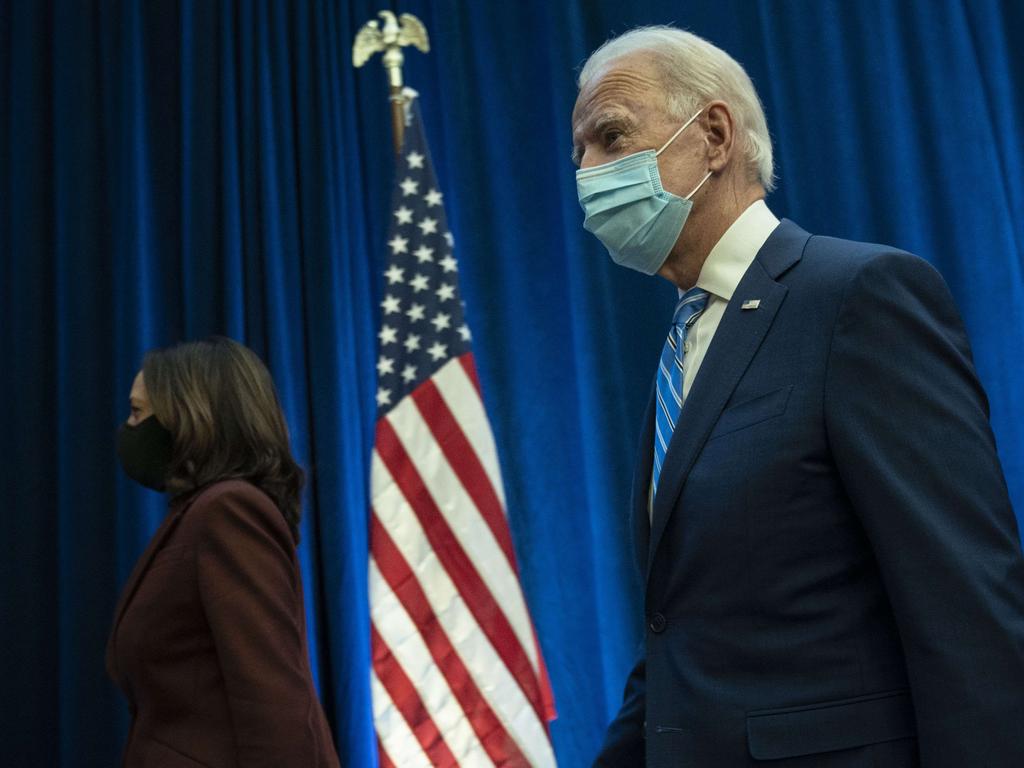US election: Uncertain Senate race mirrors nation
The congressional balance of power became clearer, with Democrats holding the House of Representatives and their hopes of snatching the Senate hanging by a thread.

The path for Democrats to flip control of the US Senate narrowed when Republican Susan Collins successfully defended her seat, virtually assuring continued political polarisation in a divided congress — no matter who wins the White House.
As the presidential battle between Donald Trump and Democratic challenger Joe Biden was coming down to the wire, the congressional balance of power became clearer, with Democrats holding the House of Representatives and their hopes of snatching the Senate hanging by a thread.
With Republicans fiercely defending their 53-47 majority, Democrats would need to gain three seats to seize Senate control if Mr Biden wins the presidency, and four seats if Mr Trump is re-elected. (A 50-50 tie is broken by the vice-president.) Democrats flipped two Senate seats in western states Colorado and Arizona on Tuesday, but the blue wave that many Democrats predicted may have crested there.
Republicans ousted a vulnerable Democrat in Alabama, and stood their ground in other key races, often fending off well-funded challenges and defying polls that warned how Mr Trump could be a drag on Republican incumbents defending vulnerable Senate seats.
The Republican Party prevailed in other closely watched races where they were under threat.
Senator Lindsey Graham — under intense pressure after overseeing the confirmation process of Supreme Court judge Amy Cony Barrett weeks before the presidential vote — fought back a fierce challenge from Democrat Jaime Harrison in the conservative bastion of South Carolina.
Senate Majority Leader Mitch McConnell easily won his race in Kentucky, and incumbents held firm in places such as Iowa, Texas, Montana, and likely in Alaska.
The latest Republican victory came in Maine, where Democrats saw the moderate Senator Collins on the chopping block in part because of her support for Mr Trump’s second Supreme Court nominee, Brett Kavanaugh, in 2018. They invested heavily in her challenger Sara Gideon, Maine’s state house Speaker who led for months in statewide polling, but Senator Collins weathered the storm and dealt a severe blow to Democrats’ Senate hopes.
“The Republican Senate majority appears likely to endure,” Kyle Kondik of the University of Virginia’s Centre for Politics wrote in a Thursday newsletter.
The Democratic door has not shut completely though. Republican senator Thom Tillis has claimed a “historic” victory in his North Carolina re-election bid, although the race has yet to be called. And there are two Senate races in traditionally red Georgia. One of them, a special election featuring Republican Kelly Loeffler who was appointed to fill the seat of a retiring senator, is headed to a run-off in January against Democrat Raphael Warnock.
In the other, incumbent David Perdue is three percentage points ahead of Democrat Jon Ossoff with 92 per cent of the vote counted.
A Democratic victory in either Georgia race would be dramatic, as no Democrat has won a US Senate election in the relatively conservative southern state since 1996.
The overall result will likely be major disappointment for Democrats, whom election forecaster FiveThirtyEight had given a three-in-four chance of winning Senate control.
Should Mr Biden, who narrowly leads in the electoral vote count, oust Mr Trump, his hands could be tied when he confronts a hostile Republican-led Senate, even at a time when a new commander in chief often enjoys a deep well of political capital.
Controlling the Senate is vital as the party in power determines which bills reach the floor and which of the President’s nominees receive confirmation votes.
Senator McConnell, the unflappable master tactician, has guided more than 200 of Mr Trump’s federal judge picks and three Supreme Court nominees through Senate confirmation. Mr Biden would have a far tougher time getting his picks through a McConnell-run chamber.
Democrats, meanwhile, kept the House of Representatives, with Speaker Nancy Pelosi — Mr Trump’s chief nemesis in Washington — likely to preside over her flock for two more years.
But it was a muted victory, with Republicans able to make gains against shell-shocked Democrats who had expected to expand their majority.
House Minority Leader Kevin McCarthy said Republicans managed to flip at least seven seats in Tuesday’s election. “President Trump’s momentum has helped us expand our house Republican coalition,” he said.
Republicans performed particularly well in Florida where they ousted congresswoman Donna Shalala, who served in Bill Clinton’s cabinet, and in Iowa and Texas.
AFP







To join the conversation, please log in. Don't have an account? Register
Join the conversation, you are commenting as Logout